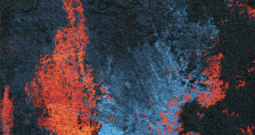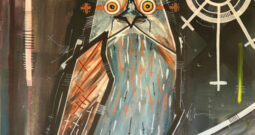from the editor's desk

A review of the Perth Writers Festival, 2016
By Scott-Patrick Mitchell
The majority of sessions I attended at the 2016 Perth Writers Festival (PWF), held at University of Western Australia (UWA), took up a common theme of innovation, asking questions of it’s authenticity, integrity and intensity. From empathy to the characters of last century to the entire Family Day experience itself, bright ideas and ‘bright young things’ were everywhere this PWF.
A highlight of the festival was the session Bright Young Things. Laura Thompson and Robert Wainwright spoke candidly about the subjects of their respective biographies: England’s wild girls of aristocracy, the Mitford sisters and Australia’s mountaineer extraordinaire, George Ingle Finch. The former were an elegant gaggle of siblings who shook and shocked England’s people with their audacity, particularly Unity Mitford who was a fan of Hitler and dined with him often, a feat that saw her branded as a fascist even though—in her own way—she was attempting to broker peace. The latter was a man little regarded in Australia, even though he invented the puffa jacket as he set out to conquer climbing Mount Everest (something he could have accomplished in 1932 if hadn’t stopped to save the life of his climbing partner.) Audacious and brave…yet not currently listed in the Australian Biography Dictionary. When asked what makes for a great innovator, Wainwright replied simply: “You have to be prepared to fail.” It’s a sentiment that reflects the deeds of Unity Mitford and George Ingle Finch perfectly, even if the latter’s climbing gear and equipment was still in use by Everest expeditions decades after his climbs.
In Artist as Activist, Ruth Little, Anthony Marra and Roman Krznaric discussed notions of empathy and more specifically how art works as a catalyst for empathy. Little provided some particularly interesting insights in this discussion when she mentioned how the scientists and artists involved in her ‘Seachange’ project were told to ‘shut up and listen’ when entering bell-weather communities, or communities most at risk of global change. The same could be said for men in general, when Little pointed out that most of the violence in the world had been perpetuated by men in the past. Little speculated on how different the world might be if women assumed the positions of power—something I myself had been discussing only just that morning, my conclusion aligned with Little’s.
The conversation was interesting, but I felt that there were some missed opportunities for inspiration by the speakers. For example, how exactly could empathy be practically applied to activism and art? Yes, Krznaric did suggest that engaging in a more active life would be of benefit, and Little did illustrate with the example of Nelson Mandella’s guerillia armies, which he used to achieve peace, but how could I be more active… and is guerilla warfare as a strategy for peace effective in a ‘peaceful’ era? When the topic moved to psychopathy, or the lack of empathy some individuals have, there was no notion of how to tackle it or those possessing it, no suggestions on how any potentiality on how to deprogram it, irrespective of what the Diagnositc and Statistical Manual of Mental Disorders (V) says.
Elsewhere, The Human Library brought an empathetic exchange of human knowledge to the fore through one-on-one storytelling and interaction. This model of performance is used to great effect at Perth festivals like Proximity, so it was good to see it adopted by PWF. Held in UWA’s Sunken Gardens, it augmented the landscape with a smattering of chattering as storyteller and listener sat together and discussed the elements of empathy that had been shared in the story just told (a volunteer told me that an extension of this project, ‘Walk A Mile In My Shoes’, is still running at Stirling Gardens until March 6th).
Across UWA’s campus, the session ‘Poetica’ featured poets Peter Rose, Lucy Dougan and Dennis Haskell. Each read from recent works, before engaging in a discussion of the writing process, and questions of Australian poetry more generally. Haskell in particular delivered both innovation and integrity in a reading of his work from his forthcoming collection Ahead of Us. This tome is an ode to the passing of his wife from ovarian cancer, and Haskell married pop sensibility with rigorous adherence to classical poetic forms with just a dash of bricolage. The work spoke of the intensity of loss with forthrightness, all the while hypnotizing the ear into an aching lament. Touching, brave and a poetry collection well worth investigating further—Westerly have recently reviewed the collection (here).
Outside the gathering of minds was a gathering of a very different kind: Family Day. This aspect of a Writers Festival is quite common, providing families and more importantly children with the opportunity to engage directly with the children’s book authors and aspects of literature and literacy. At PWF, however, there were some particularly innovative approaches to this, at least in my mind. One of these was a zine-making stall ran by The State Library of Western Australia (SLWA). The realm of zine-making has, by and large, been one occupied by teenagers and emerging authors, a trend that has found new ground in Western Australia with the opening of such zine-making hubs as Aunty Mabel’s Zine Distro and Paper Mountain. But to see children making zines is typically only something that occurs, if it occurs at all, in a classroom. That’s why SLWA’s hub of young creative energy was a joy to behold: teaching kids about the opportunity to self-publish, from an early age, is a good strategy for fostering engagement and creativity in the state’s youth. With an instruction sheet on how to make an origami fold-out zine from a single piece of A4 paper and a swag of volunteers on hand supervising (and muttering when the photocopier decided to jam, as it always does) the children interacting with this space soon filled the SLWA Cubby House Library with a multitude of their efforts, all on hand to proudly show their parents or for other children to read themselves.
Fremantle Press children’s book author Sean E. Avery also created an interactive art project where children (and maybe the odd adult…including myself) could create a scale to adorn the large snaking shape of Pete the Dragon, a popular character of Avery’s. The work took shape on the Sunday, exploding into a multiplicity of colour, energy and enthusiasm.
So with all these brilliant instances of innovation taking place, I decided to try my hand at it. I ordered a coffee from one of the food stalls at the Festival hub, asking how much it would cost. The barista said he’d happily swap a coffee for a poem. So I recited a poem and, slightly agog, he gave me my coffee with an extra shot. Prognosis? It was a beautiful complement to PWF, as charged and enjoyable as the entire Festival itself.





